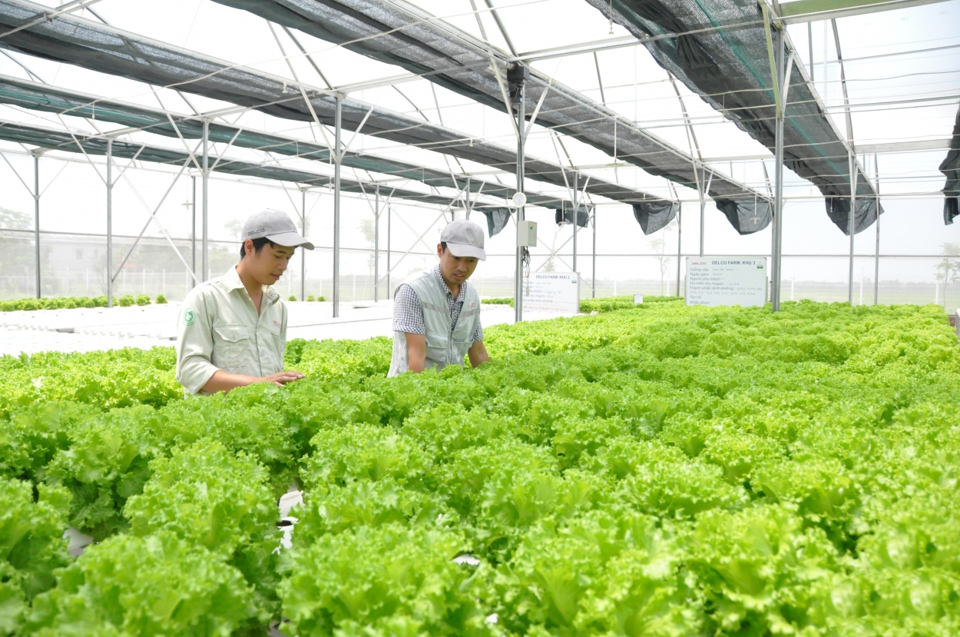Hanoi to increase urban agricultural production value
The move is aimed at tapping into the city's local strengths and assets in urban agriculture, supporting tourism and green space creation, and safeguarding the environment.
Hanoi sets the target of increasing urban agricultural production by 2-3% per year, the city revealed in its plan for urban agricultural development in 2024-2026, with a vision to 2030.
| Safe vegetable production in Thuong Tin District, Hanoi. Photo: Ngoc Anh/The Hanoi Times |
Under the plan, the project is designed to foster urban agriculture in Hanoi in an environmentally friendly, modern, and sustainable manner.
It aims to enhance the value of agricultural output, adapt to climate change, efficiently produce high-quality goods, ensure food safety and nutritional security, and establish links between production, urban markets, and the needs of urban dwellers.
At the same time, the project seeks to tap into the city's local strengths and assets in urban agriculture, promote the role of urban agriculture in supporting tourism and green space creation, and safeguard the environment.
Through the objectives, strategies, mechanisms, and supportive policies outlined in the project, Hanoi aspires to achieve several key targets by 2030. These include an annual growth rate of 2-3% in the urban agricultural production market (including agriculture, forestry, and fishery), a 70% or more utilization of high-tech and ecological agricultural practices, and a 50% self-sufficiency rate in terms of agricultural products within urban agriculture.
Of particular note is the city's emphasis on developing ecological agricultural models that integrate eco-tourism and experiential activities, urban agrotourism, rural agriculture, and environmental conservation. The project also focuses on establishing secure agricultural raw material areas with specific growing area codes and increasing green coverage through urban agriculture.
Furthermore, the city is committed to the efficient and sustainable use of agricultural land by converting unproductive rice-growing areas into orchards, flower gardens, and urban agriculture-supporting trees, as well as facilitating aquaculture services and livestock production.
Hanoi's agriculture sector currently contributes only 2.3% to the city's Gross Regional Domestic Product (GRDP). Locally produced agricultural items meet 30-65% of the demands of the city's residents and workers.
As of present, Hanoi's agriculture industry can only satisfy 65.6% of rice, 94.1% of pork, 28.8% of fruits, 94.2% of poultry eggs, and 50% of seafood requirements. The rest is supplied by provinces and cities across the country and imported.
Therefore, developing urban agriculture to ensure the production of high productivity, quality, and safe goods for Hanoi consumers is an imperative matter that befits the city's status as the capital.












